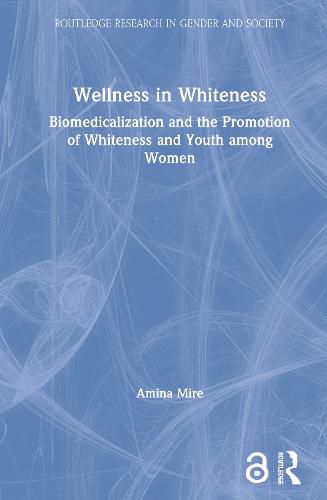Readings Newsletter
Become a Readings Member to make your shopping experience even easier.
Sign in or sign up for free!
You’re not far away from qualifying for FREE standard shipping within Australia
You’ve qualified for FREE standard shipping within Australia
The cart is loading…






The Open Access version of this book, available at https://www.taylorfrancis.com/books/9781351234146, has been made available under a Creative Commons Attribution-Non Commercial-No Derivatives 4.0 license.
This book analyses the social and ethical implications of the globalization of emerging skin-whitening and anti-ageing biotechnology. Using an intersectional theoretical framework and a content analysis methodology drawn from cultural studies, the sociology of knowledge, the history of colonial medicine and critical race theory, it examines technical reports, as well as print and online advertisements from pharmaceutical and cosmetics companies for skin-whitening products. With close attention to the promises of ‘ageless beauty’, ‘brightened’, youthful skin and solutions to ‘pigmentation problems’ for non-white women, the author reveals the dynamics of racialization and biomedicalization at work. A study of a significant sector of the globalized health and wellness industries - which requires the active participation of consumers in the biomedicalization of their own bodies - Wellness in Whiteness will appeal to social scientists with interests in gender, race and ethnicity, biotechnology and embodiment.
$9.00 standard shipping within Australia
FREE standard shipping within Australia for orders over $100.00
Express & International shipping calculated at checkout
The Open Access version of this book, available at https://www.taylorfrancis.com/books/9781351234146, has been made available under a Creative Commons Attribution-Non Commercial-No Derivatives 4.0 license.
This book analyses the social and ethical implications of the globalization of emerging skin-whitening and anti-ageing biotechnology. Using an intersectional theoretical framework and a content analysis methodology drawn from cultural studies, the sociology of knowledge, the history of colonial medicine and critical race theory, it examines technical reports, as well as print and online advertisements from pharmaceutical and cosmetics companies for skin-whitening products. With close attention to the promises of ‘ageless beauty’, ‘brightened’, youthful skin and solutions to ‘pigmentation problems’ for non-white women, the author reveals the dynamics of racialization and biomedicalization at work. A study of a significant sector of the globalized health and wellness industries - which requires the active participation of consumers in the biomedicalization of their own bodies - Wellness in Whiteness will appeal to social scientists with interests in gender, race and ethnicity, biotechnology and embodiment.